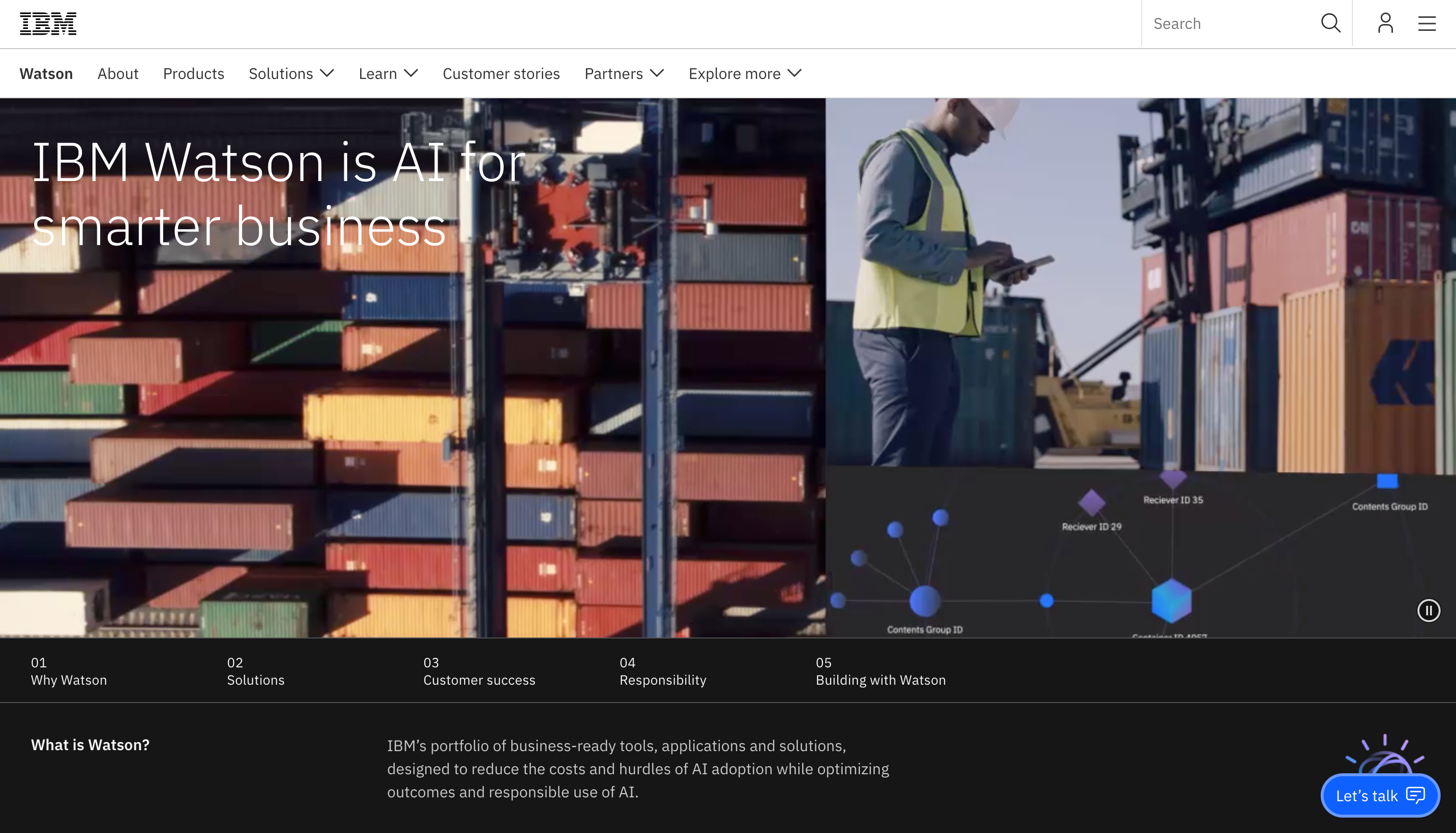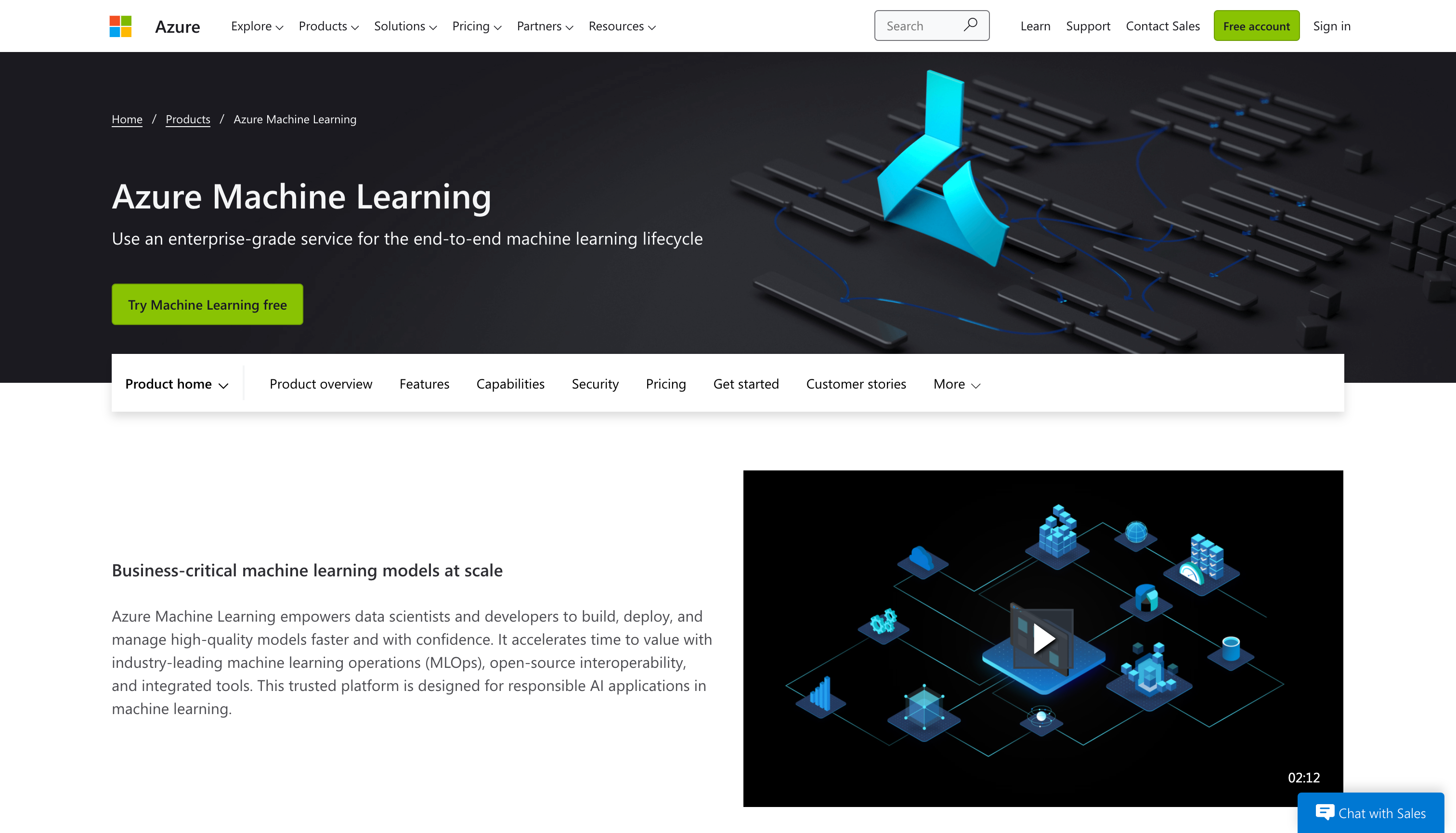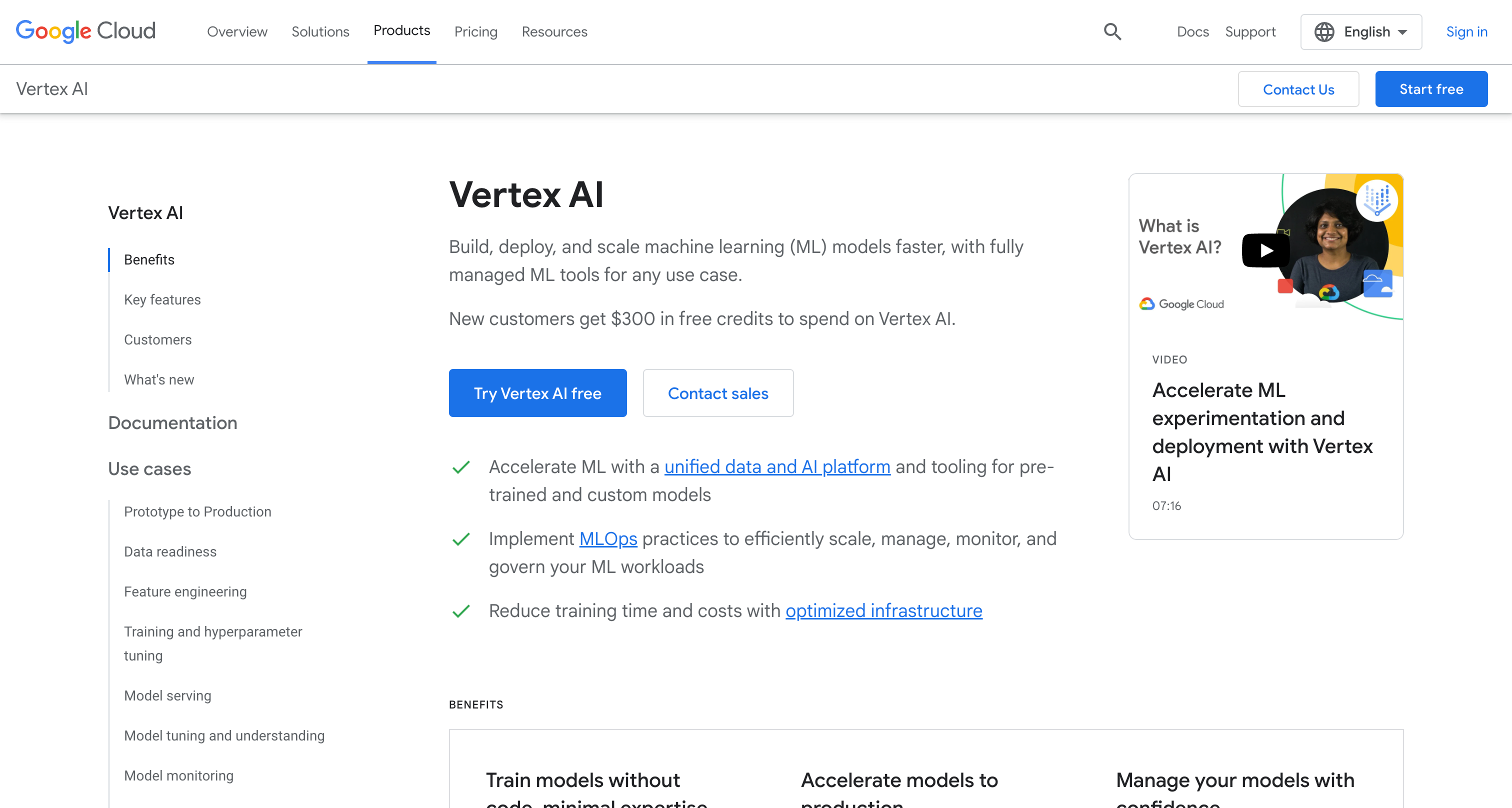Guide to eCommerce AI – Understand artificial intelligence for Shopify
Are you a Shopify eCommerce manager who is struggling with how to best incorporate artificial intelligence (AI) into your ecommerce platforms? Are you feeling uncertain about how AI tools, like machine learning and natural language processing, will affect the success of your online business? With the increasing popularity of AI as a tool for ecommerce businesses large and small, it’s important to understand how ai in ecommerce can optimize ecommerce stores.
In this guide, we’ll provide an overview of AI in ecommerce. We’ll show you how to use AI in various facets within the ecommerce industry and throughout online shopping. Additionally, we’ll also discuss strategies for leveraging AI software in order to increase sales by optimizing the customer’s online shopping experience.
Understand what AI in ecommerce is capable of doing on your behalf and apply these valuable insights. Then, you’ll have everything needed to make intelligent decisions that positively impact your bottom line.
Are you ready to save time and bring a personalized shopping experience to your customers? Try MESA today and start using AI in everyday workflows.
Topics:
What is artificial intelligence?

Artificial intelligence is the ability of a computer or machine to think and learn. It is an area of computer science that emphasizes the creation of intelligent machines that work and react like humans. AI solves complex problems and completes tasks that are difficult for humans to do.
Specifically, AI is effective in a variety of applications, including robotics, natural language processing, machine learning, computer vision, and more.
For businesses, AI can automate processes, improve decision-making, and identify actionable insights in big data.
AI in ecommerce can also provide a personalized shopping experience, with the help of virtual assistants and chatbots.
How has artificial intelligence been developed over the years and where is it headed in the future?
In the early 1950s, artificial intelligence began with research into computer programs that could solve problems and learn. This led to the development of algorithms, which are the basis of today’s AI systems.
Over the years, AI and machine learning have grown in complexity. It is in a variety of fields, from healthcare to autonomous driving, and is continuing to evolve.
In the future, AI technology will become even more widespread and powerful. Implementing AI will become more efficient too. Soon, you’ll able to make decisions faster, as well as become more embedded into everyday life. Ultimately, AI will augment and improve human capabilities, as well as open up new possibilities for the future.
Most Popular AI Platforms
The most popular artificial intelligence platforms typically offer a wide range of services. For example, APIs, big data tools, and business intelligence libraries for developers to build their own projects and applications. Additionally, most of these AI technology platforms allow users to train and deploy models.
OpenAI

OpenAI is a research laboratory based in San Francisco, California. They’re focused on creating artificial general intelligence in a way that is safe and beneficial to humanity. It is a non-profit organization dedicated to researching and developing friendly artificial intelligence. OpenAI’s research focuses on deep learning, reinforcement learning, unsupervised learning, machine learning, and other related topics. The organization is backed by a number of notable investors, including Microsoft, Amazon, and Elon Musk.
IBM Watson

IBM Watson is a cloud-based artificial intelligence platform that offers a variety of services including natural language processing, analytics, machine learning, deep learning, and more. Watson allows users to access powerful AI-powered services to gain insights, analyze data, and create intelligent applications. IBM Watson can be used for a wide range of applications, from healthcare, ecommerce industry and customer service to finance, education, and media.
Microsoft Azure Machine Learning

Microsoft Azure Machine Learning (Azure ML) is a cloud-based service for building, deploying, and managing predictive analytics AI models. It enables data scientists and developers to create, deploy, and manage predictive analytics solutions quickly and easily. Azure ML provides a comprehensive set of tools and services for building and deploying machine learning models. It offers an integrated development environment and an automated machine learning service. It also provides data science and AI services such as natural language processing, and time series forecasting.
Google Vertex AI

Google’s Vertex AI is a cloud-based artificial intelligence platform that provides developers with access to Google’s machine learning and AI technologies. It includes a range of tools such as AutoML, Cloud TPUs, Cloud ML Engine and APIs for natural language processing and more. Vertex AI makes it easier for developers to build, deploy, and manage machine learning models.
The importance of AI for ecommerce
AI has the potential to revolutionize ecommerce and provide opportunities for Ecommerce Managers to get more out of their businesses without adding more resources.
Over the next 3-5 years, AI will become increasingly important in helping businesses better understand customer behaviors, optimize marketing efforts, manage inventory, and provide personalized customer experiences.
To ensure successful AI implementation and maximum output, you have to begin collecting data as soon as possible. Businesses that rely solely on manual labor for repetitive tasks will not be able to sustain their growth rate in the long run; competitors who embrace AI technology early on will outpace them and leave them far behind.
Benefits of AI for ecommerce
By leveraging AI-based solutions such as Natural Language Processing (NLP), Machine Learning (ML), or deep learning algorithms, ecommerce managers can automate tasks and gain an understanding of customer data that was unimaginable before. This will result in smarter decision-making and ultimately, higher profits for the business.
As they scale, AI can help them become more efficient by streamlining processes and reducing the need for additional resources. That allows store owners to focus on their core business activities like long-term strategies, brand, company culture, customer satisfaction, and more projects humans are better equipped to handle.
Use cases of AI in ecommerce
As AI becomes more accessible, Ecommerce Managers should be prepared to embrace this technology and take advantage of its capabilities in order to ensure their businesses stay ahead of the competition.
Customer Engagement
Analyze customer behavior and purchasing patterns to gain valuable insights into their preferences, enabling Ecommerce Managers to create targeted campaigns that appeal directly to individual customers.
According to research by Localytics, you can expect an 18% improvement in open rates and a 20% improvement in click rates for emails sent using AI-driven tools.
Product Recommendations
AI can recommend similar or complementary products based on previous purchases. This will help increase customer loyalty as well as boost sales for the store.
Personalization is the key to success for ecommerce stores, with an average of 30% increase in sales when personalizing product recommendations.
Inventory Forecasting
AI can also help manage inventory levels more efficiently by automating processes such as restocking items or predicting which products are likely to sell best during certain seasons. This helps businesses determine the exact number of items needed for a particular order or season, minimizing excess inventory costs while ensuring that customers always have what they need.
Improve Logistics
AI-powered tools such as route optimization algorithms can identify the most efficient routes for transporting goods, reducing delivery time and minimizing costs associated with shipping. AI can automate supply chain management tasks such as tracking items in transit, identifying delays, and providing notifications of order status changes.
Drive Better Conversions
Recommendation engines can personalize products for customers based on their past purchases, preferences, and behavior. This allows the ecommerce store to present customers with products that are more likely to lead to a sale, increasing the conversion rate. AI can also automate marketing tasks such as email campaigns and targeted ads, helping the manager reach specific customer segments that are more likely to convert.
Reduce Seasonal Hiring
With AI, brands can automate more tasks and reduce the need for seasonal employees. AI-powered chatbots are also becoming increasingly popular tools that allow customers to interact with websites in real-time. These chatbots can answer questions, provide product recommendations, process returns, and help customers find what they’re looking for quickly and easily. Through the use of AI, ecommerce brands can save time and money on staffing issues while still delivering quality customer service.
How to prepare for artificial intelligence in ecommerce
First, develop an understanding of how AI will affect ecommerce businesses and the ecommerce industry as a whole. Research the various AI technologies available. Additionally, ecommerce business owners should develop a strategy for integrating AI into the company.
Next, gather data on customer experiences and use it to inform decisions on how best to implement AI. Ecommerce companies should also invest in resources to build and maintain AI applications. It’s essential to create plans if things go wrong.
Invest in AI-powered tools that can automate and optimize operations, such as chatbots, virtual assistants, customer segmentation, and automated product recommendations. This can help drive sales and increase customer happiness.
Take advantage of AI-powered customer support apps that can provide personalized responses, identify customer needs, and respond quickly to customer inquiries. This can help improve potential customers experiences and increase customer loyalty. The more positive customer interactions throughout the ecommerce store, the better chance to increase customer retention.
Create a strategy for integrating AI into every shopping experience, including using AI to personalize store content and optimize navigation. AI analyzes customer behavior, identifies trends, and creates marketing campaigns.
Monitor the results of AI-based initiatives and adjust the implementation as needed. This ensures that AI builds a more efficient sales process.
Lastly, ensure that all AI projects and initiatives comply with applicable data privacy laws. This will help businesses protect customer data and maintain trust.
Potential risks of using AI
Yes, there are potential risks associated with using ecommerce AI for your Shopify store. Some of these risks include:
Data Security: AI can potentially store sensitive customer information and data, which can create a security risk if it is not properly protected.
Accuracy: AI is not always 100% accurate without proper training. This could potentially lead to inaccurate predictions and decisions.
Privacy: An AI engine can potentially collect and use customer data without their knowledge or consent, which could lead to potential consumer data privacy issues.
Cost: AI systems can be expensive to implement and maintain, which could be a potential risk for ecommerce businesses.
How will artificial intelligence impact Shopify stores in particular?
The increasing use of artificial intelligence in ecommerce will revolutionize the way online shoppers interact with retail businesses and the way stores work toward an efficient sales process.
For Shopify stores specifically, AI will analyze customer behavior, generate valuable insights, and create targeted marketing campaigns. Additionally, AI-powered chatbots will answer more customer queries. AI can also help Shopify stores better understand customer preferences, allowing online retailers to create a more seamless customer experience.
How to use artificial intelligence to benefit your Shopify store
For most online retailers, you know that running ecommerce businesses requires more than just having quality products available for purchase—it also requires staying ahead of the competition and keeping up with ever-evolving technology trends.
One of the most innovative methods for scaling your ecommerce website and increasing online sales is using artificial intelligence to benefit customer engagement.
With AI technology, you’ll be able to provide personalized shopping experiences, automate mundane tasks, provide customers with better virtual assistants, improve product recommendations and assist in marketing efforts.
What are AI benefits for Shopify store owners?
Let’s take a deeper look into the top 5 benefits of artificial intelligence for your ecommerce business.
Improved customer experience
AI can improve customer experiences by providing personalized recommendations and customer centric search. AI can help customers find what they’re looking for faster by providing relevant product and service recommendations based on past purchases and search history.
Artificial intelligence in ecommerce customer service systems can also help surface answers to their questions and provide more efficient problem resolution.
AI-powered chatbots can provide customers with personalized, real-time support and answers to their questions using natural language. This helps to create a more positive customer experience and encourages customers to purchase from the online retailer.
MESA Template ID
mcp-send-slack-message
Automated marketing
Artificial intelligence in ecommerce is perfect to automate marketing campaigns.
AI automation can be a massive time- and resource-saver in regard to tedious marketing tasks.
With AI, marketers have access to lightning-fast data analysis that helps detect trends. It also provides important insights for smarter decision-making. This means you’ll spend less time on mundane manual labor. Which results in more energy focused on what really matters: improving your ecommerce store!
By introducing automation into your marketing strategies, you can not only lower the costs of manual labor but also decrease the possibility of error. Artificial intelligence has made it possible to automate time-consuming and tedious activities, leaving more room for essential tasks that require human input.
By leveraging AI, marketers can reach potential customers quickly with predictive analytics. Not only that, but they will be able to discover influencers more easily and enhance campaigns for maximum effect. With the help of artificial intelligence, obtaining a wide audience is easier for ecommerce retailers.
MESA Template ID
mcp-email-send
Increased sales
Artificial intelligence can help to increase sales by providing customers with personalized product recommendations and discounts. AI will analyze customer data and identify trends, allowing businesses to adjust their marketing strategies accordingly. It can help sales teams prioritize leads and focus on those most likely to convert.
Additionally, it can predict customer behavior to better understand their needs and target them more effectively.
Improved inventory management
AI can improve inventory management for ecommerce businesses by using predictive analytics to anticipate customer demand and anticipate when products may need to be reordered. AI can also help automate the ordering process, optimizing the inventory level to reduce stock-outs and overstock.
Additionally, it can also be used to automate the forecasting process and help identify patterns in customer buying behavior.
Finally, AI can be used to analyze customer reviews and feedback to provide insight into customer preferences and help inform inventory decisions.
Improved security
AI can help to detect fraud and protect customer data, ensuring that customers feel safe when shopping with the business. AI improves security and reduces fraud for an ecommerce business by using machine learning algorithms to detect and prevent suspicious activity such as identity theft, account takeovers, and other malicious activities.
Additionally, AI can analyze user behavior to flag suspicious transactions, identify patterns in fraudulent activity, and detect anomalies in customer data. Many ecommerce businesses can now identify potential fraud before it has a chance to become a financial or legal issue.
AI can also automate authentication tasks, password resets, and other security protocols to reduce the risk of cyberattacks and data breaches.
Considerations before integrating AI into business
There are a variety of considerations before diving in and integrating AI solutions into the processes of your ecommerce site.
Understand the current and future needs
Before integrating AI into their departments, businesses should first understand the current and future needs of their online stores. This includes understanding their customer demographics. And, the current market trends to ensure that AI solutions are tailored to their specific needs.
Consider the cost of implementation
AI in ecommerce can be costly and businesses should consider the cost of implementation and ongoing maintenance to ensure it is feasible for their own budget.
Analyze your data
Ecommerce retailers need to analyze the data they have available in order to accurately train their AI algorithms. This ensures they are getting the most out of their AI solution.
Ensure your data is secure
AI solutions rely on data to operate, which means businesses must ensure that the data is secure and protected.
Develop a measurable AI strategy
Developing a strategy is essential for successful artificial intelligence integration. This should include the goals and objectives of the AI solution, how it will be implemented, and the expected results.
Invest in AI training
Investing in AI training for employees is key to successful integration. Without proper training, employees will not be able to use the AI solution properly and understand how to interpret the data.
Overall, using artificial intelligence can be extremely beneficial for your Shopify store in a variety of ways. There are many advantages to incorporating AI into your ecommerce strategy. From automating marketing efforts and improving the customer experience to increasing sales and protecting your business data.
And, with MESA, you can get started easily. Our team will even setup your first workflow free! So what are you waiting for? Try MESA today for free and see how AI can benefit your business.



